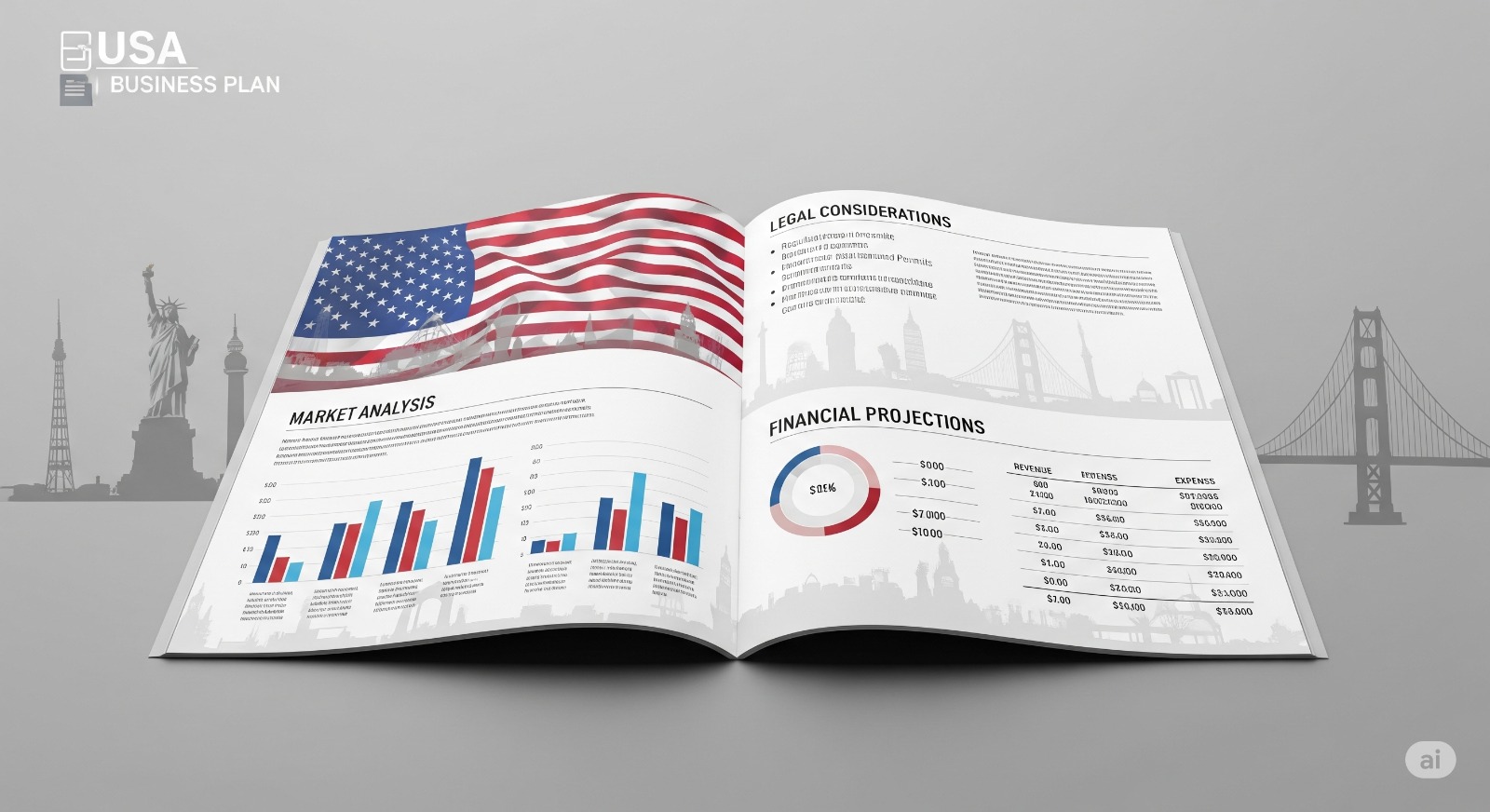It’s 2025 and you’re ready to #BeYourOwnBoss, possibly with nothing more than an overpriced oat milk latte and a TikTok pitch. But then—oh no!—here it comes: someone mentions a Business Plan. Suddenly, visions of spreadsheets, pie charts, and existential dread swirl faster than your espresso shot. Do you actually need a formal business plan, or is this another “laundry must be folded immediately” level adult myth? Welcome, chaos hero, to the truth about starting an American business—the answer might shock you (or just mildly annoy you).
The Urban Legend of the Required Business Plan
You’ve probably heard that you can’t start a business without a 26-page Business Plan with more footnotes than a government stimulus bill.
Reality check: There’s no secret FBI agent bursting into your co-working space to say, “Ma’am, you forgot section 6B: SWOT analysis.”
Let’s be honest, some wildly successful companies started without a formal business plan—just look at the endless parade of 21-year-old “founders” and their “disruptive” apps. Amazon? Started in a garage. Starbucks? Rumor has it their business model was “charge five bucks, hope for the best.” Yet, business plans still haunt entrepreneurial dreams like a boomer’s PowerPoint slide.
Spoiler: There is no Business Plan Police. Only the loneliness of a blank Word doc.

When You Can Get Away With “Just Vibes” (But Probably Shouldn’t)
Okay, so technically in the USA, there’s no law demanding a Business Plan before you launch your dreamy startup. You can start selling artisanal dog cupcakes or AI-powered plant misters with nothing but proof of a domain name and misplaced confidence.
- Going solo? You may not need a formal plan. Congrats, you’re a maverick.
- Just want a side hustle? Forget the plan—focus on your Etsy photos.
- Planning to “test an idea”? No plan needed. Just a very forgiving credit card limit.
Entrepreneurial wisdom: If your entire business fits on a napkin, you’re in good company. Legendary companies have started with less (and failed with more).
But before you uncork that “I don’t need a plan” champagne, ask yourself:
- Do you want funding? (Banks love paperwork.)
- Hoping for a partner or team? (No one likes chaos… unless it’s their Instagram brand.)
- Prone to losing focus or getting bored? A [Business Plan] could be your shiny to-do list.
The Ugly Truth: Investors Care More About Your Plan Than Your Personality
Here’s the ugly, iced-coffee-stained reality: while you can start a business without a Business Plan, try convincing anyone to give you money without one.
Real talk:
- Venture capitalists? They’ll ask for a plan before they even pretend to like your pitch.
- Banks? They collect [Business Plans] like Starbucks reward points.
- Serious partners or co-founders? Unless your cousin Steve is running your books, you probably need something in writing.
Lists banks love that you probably don’t:
- Detailed projections (aka, “How Broke Will You Be in Year Three?”)
- Market analysis with lots of acronyms
- Executive summaries as dramatic as Oscar speeches
Let’s face it: Investors will never fund an idea scrawled on the back of a Starbucks sleeve (even if you drew a graph).

But What About “Lean Startups”? Can’t I Just Pivot Endlessly?
Ah yes, “lean startup methodology”—the grown-up way to say, “I’ll make it up as I go along.” While modern wisdom loves the “build, measure, learn (repeat until broke)” loop, even lean startups benefit from jotting down actual thoughts.
Bullet points courtesy of your inner cynic:
- Writing a business plan forces you to answer uncomfortable questions, like “What am I actually selling?”
- It keeps you focused (at least until you get distracted by a trending sound on TikTok).
- It makes you look serious, which sometimes helps you actually be serious. (Fake it till you file your taxes.)
- You might even spot a giant flaw before you dump savings into your “drone-powered smoothie delivery” empire.
Lean is great, but lean does not mean clueless. You still need some kind of plan so you can “pivot” from something, not just spiral into chaos.
The Bare Minimum: If You Write Anything, Write This
Hate paperwork? No judgment. But bare minimum, jot down:
- What are you selling and to whom? (Hint: “everyone” isn’t a target market.)
- Why will people pay more than it cost you to make? (Math is pain, but so is bankruptcy.)
- What are your top 2-3 goals for the year that don’t include “finally get more than three likes on LinkedIn”?
- A budget, because you’ll spend more than you meant to.
A Business Plan doesn’t have to be fancy—a few pages, heck, a few Google Docs bullet points will do for most solo ventures. But if you want to impress anyone with a suit, write it up like you’re in a Netflix reboot of The Office.
Conclusion: Plot Twist—You Don’t Need a Business Plan (Except When You Actually Do)
Did you make it all the way here? Congratulations. You’ve now spent more time obsessing over whether to write a Business Plan than most billionaires ever did—at least at first. Start messy, plan a little, brag a lot. Sometimes you need the plan, sometimes you just need the audacity. Either way, your future self (or the bank, or your broke co-founder) will thank you for pretending to care about “structure.”
Now go forth, write your plan (or don’t), and remember: every business starts with chaos and a little caffeine—official paperwork optional, but sarcasm mandatory.
